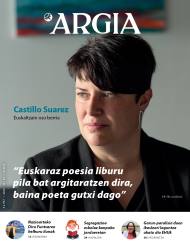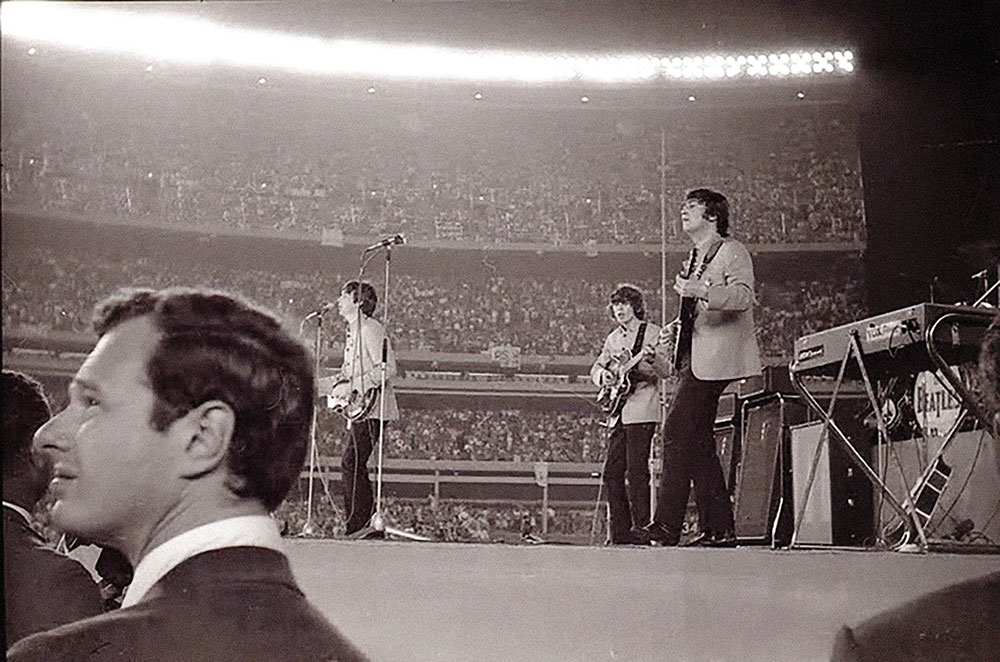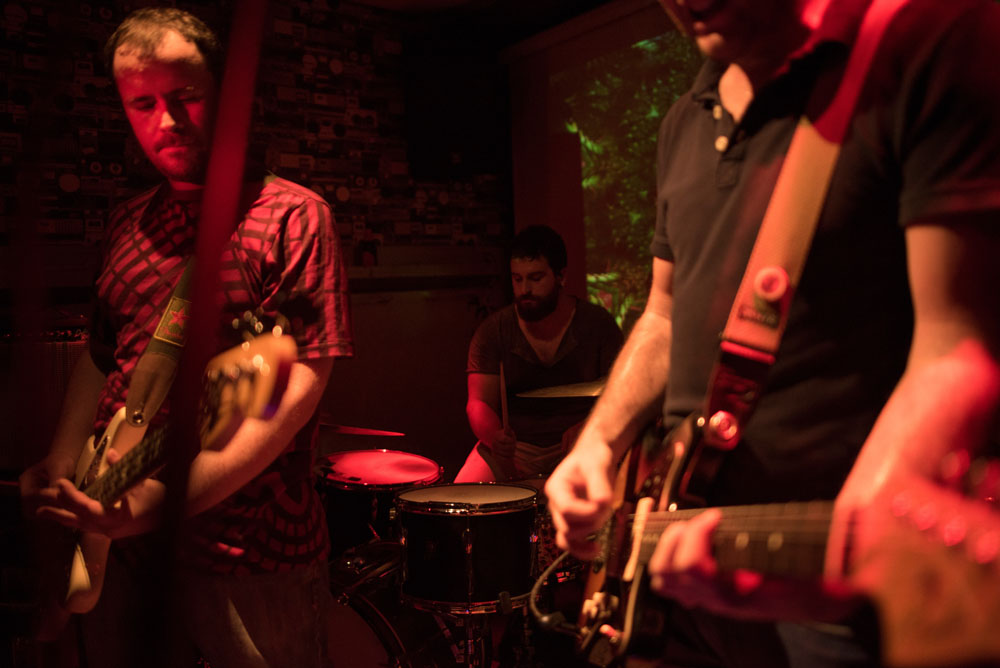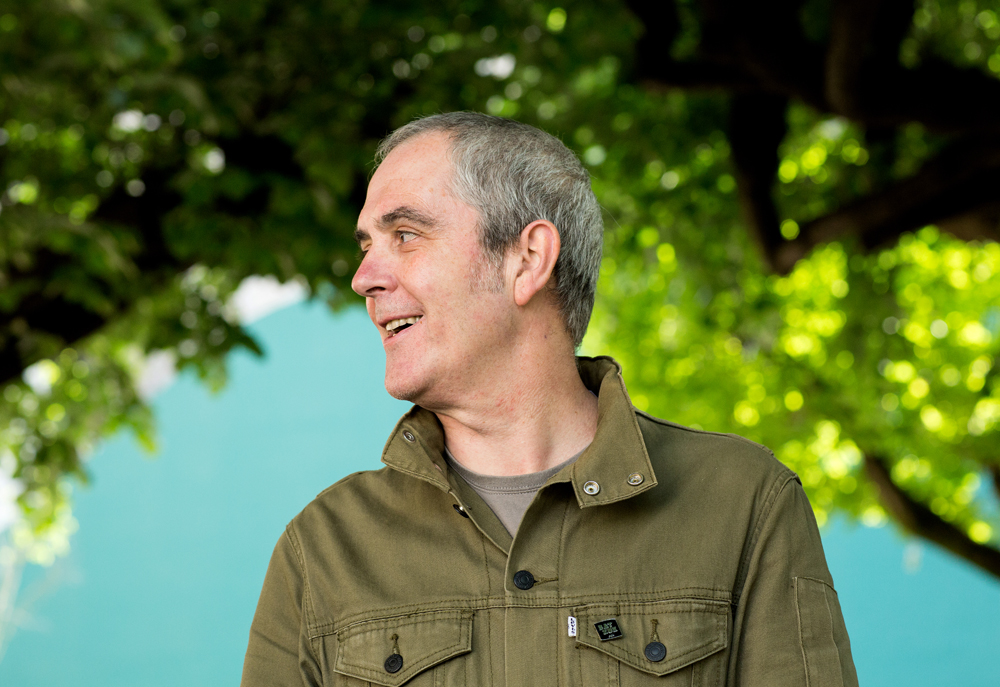“Pop is not a pure idea, but an omnivorous reality”
- Elbis Rever turns 15 this year. In this space they have performed over 500 songs, almost 200 concerts and four interviews. The data suggests which group coordinates are: between the aspiration of a pop group and a sound and a marginal attitude are discussed in the limits of concealment. Its image has mainly been built in direct performativity, but lately it is being given to the search for its own sound. Proof of this is the recent publication of Happy Birthday.

Alba Burgos (Bilbao, 1984) and Natalia Vegas (Astrabudua, 1984), recently joined the Faculty of Fine Arts in Bilbao, met 20 years ago. They remember it as a very vivid time. The space robots project began with Miguel Angel García ‘Xedh’ and were part of the “pop collective” together with other artists. “We did a lot of things: for example, we studied what physical sensations Arnold Schönberg’s albums produced, we looked at Stan Brakhage’s videos, and in general the spirit of Fluxus was very present in everything we did. Some professors once participated in the collective sessions.”
Shortly afterwards, when Burgos was about to go to Warsaw (Poland) during his Erasmus stay, Vegas and both decided to create a group. They also decided on the name, to turn the word [invertible, in Spanish], and so on: Elbis Rever. They talked again. But Burgos found Warsaw boiling, and could not form a group and maintain the temptation to give a concert: he offered the first performance of Elbis Rever with several known as Janina and Alexandra McCormack and Faezeh Arae. He also recorded with them a six-track model. When he returned to Bilbao he informed Vegas: “It is, we have the group, and this is our first album. Move around and learn everything you can.” 15 years later, Burgos lives in Hong Kong, Vegas in Bilbao, but Elbis Rever goes ahead and to celebrate it they will publish the vinyl Happy Birthday at the end of the year. Taking advantage of the return of Burgos for a few days, a terrace of the Plaza Zabalburu of Bilbao is chosen for the interview. “They haven’t given us the Zabalburu sound label.”
Elbis Rever can be characterized in many ways. Also from denial. For example, they do not particularly use high-quality sound.
We've always been dirty with sound. If during a recording background noise comes in, we never clean it. In this we do not agree with the typical concept of sound by sound technicians: they want to first record a “clean” sound and, if noise is added, add it later. We do not think that is right. Imagine that you've recorded something, it's gone really well, and as you record it a dog from the barking area and its sound has entered the recording. Why re-record? With four hundred repetitions you don't care. Let him be barking.
"Imagine you've recorded something, it's been great for you, and during the recording a dog from the barking area and its sound entered the recording. Why re-record?"
Aesthetic error?
Yes, but no search. Many times there is a mistake and then we are not interested in aesthetics. What is more: “Look, how good it is.” It probably has to do with an attitude inherited from noise, claiming that other types of sounds are audible. We have always respected what happens for the first time. We don't make big laps on the songs: we recorded, we uploaded the same day to Soundcloud and started something else.
They say they don't rehearse.
What we like is making music. Furthermore, what is called testing? In our case, since we do not touch any instrument, it does not make much sense. We don't know the lyrics to many songs. We could learn, but then we'll get drunk on stage, very nervous, we won't remember anything, and it'll be the same -- a sign that we're having a good time. We've done playback many times, singing above our voices, because if we're not uncomfortable. Our concerts almost always have a bad sound. We have had very bad luck in this regard.
But were you not primarily a direct group?
We've had that fame, surely because there's a big leap from our live recording. Before, maybe music wasn't that important, and with the attitude of the stage, we complemented the direct ones. Now, instead, we've relaxed the mood on stage, but we're very comfortable with the music we make. The process of songwriting is much longer than before. It will have to see the distance between them. In central Hong Kong and Bilbao is an abstract place called Elbis Rever, undefined but somewhat. The same thing that happened to us at the first concerts happened to us when we were able to finish a song: “Oh, now yes, Elbis Rever is alive.” And it's not because we've changed the technical level of production a lot, but because we're increasingly looking for a sound or an atmosphere. What was once immediate is no longer, it gives you time to realize what aspects of the song you can do more, and that has brought us another perspective. It will be maturity [laughing].
.jpg)
Anyway, you've done more than an attempt to make the live experience more complex. For example, the audience must follow the concert outside the window while playing in a small store, through the Youtube streaming signal. Or cast the concert through the Cam4 porn platform…
Yes, the streaming we did on the M-A Concept Store, at the artist's store David Martin Angulo. We think it's important to adapt to each particular experience: the store is very small, we were very conditioned, and that came to mind. And we have also frequently used the Cam4 platform. We started proposing a follower who lives in London. I wanted to see us live, but the distances made it hard. “It happened to me that you can give the direct through the Cam4,” he kicked us out, and so we started. The visual of the platform was very nice: we gave us a concert and around people doing a felation. For almost two years we were doing that.
We have also done other things. For example, we call the concerts in Larraskito the “concert on the couch”, the “concert on the bed”, the “concert on the bank”. One of them was sitting on a couch, another lying in bed, or sitting on a small seat. Once again we make an exhibition inside a pool. It is not so much a performative issue, we simply like to put ourselves in the situation.
You seem to like hiding with yourself.
Yes, for us it is a “malaise” game. But it comes out naturally. Surely it has to do with shame, we had a very bad time before the concerts. Our audience is very rare: you can find heterogeneous old men, hard to know exactly why they come, or very young maritxu. Our audience is people who can almost start playing. That’s what happens in Bilbao: you’re in El Balcony de la Lola on a Sunday at 2:00 p.m., and there you get together.
"The world of art is an old port and also of music. Being sidelined is the best position you can have, unless you need them to make a living."
I didn’t expect to be afraid of listeners…
Well, beyond listeners being rare, we're scared of stage. We have always had it. We don't think we're a regular musical group. In the direct ones we often leave ourselves and look at what we are doing as if we are watching the concert from outside. Like other musicians, it's very violent. You're ashamed. You see videos of Bad Gyal, how he empowers himself, what his strong attitude is, how the stage comes… We have never felt that. Of course, we've lived through moments of madness, but we wondered at the next moment. “What are you in?” Or, "Now this song? Diminishing.” Sometimes we cut a song in half and move on to the next one. Which group does it?
You notice an ambivalence: on the one hand, an aspiration to a pop group and, on the other, a clear awareness of your real position. This double game gets a lot of juice.
It can be. However, we increasingly have smaller aspirations. It becomes an adult, and yes, it maintains an ideal, but aspiration and reality are getting closer. Even the sound we've gotten lately speaks of the space in which both worlds converge. The methodology of making pop is for us: using simple structures, repeating the chorus, taking music from others… What Andy Warhol was doing is that: taking a picture of the newspaper and reproducing it in series. Outside of this, what is pop? Today pop is not a pure idea, but an omnivorous reality transmitted through capitalism. Everything is pop, pop is punk, pop is rock. Pop is a store sign. Our image has also been greatly simplified: before we made very elaborate posters of the concerts, now we put letters on a black background and dot. We have become very minimal. They have brought together the two aspects you mention, because times are like this.
.jpg)
You come from art, you make music, but you are also out of the artistic and musical worlds. How did you experience it?
OK. It is relaxing, we do not feel any demands. The world of art is an old port and also of music. Being out of both is the best position you can have, unless you need them to make a living. We have never been in the art world, but the mind does not know how to distinguish and we are still linked to ideas from the university era: we continue to talk about image or aesthetics. And what about music -- what is being in the music world? From Trapaga, this world has dispersed enormously. You can do whatever it is. Maybe being in the music world right now is being in a network of people who follow us on Instagram. You know people who work with ideas similar to you, you create virtual communities that make you feel like part of something. More and more people are making music without being part of the music industry.
You will publish Happy Birthday work at the end of the year to celebrate the fifteenth anniversary of the group. How has the process been?
The fact is that last year we were wrong and we thought we were turning 15, but it was fourteen. So we held a feast to celebrate the fourteen years, and we also took a tape with Crystal Mine. But once we had the fourteen, we decided we had to celebrate the fifteen. On the tape we have had to listen to many old songs, over 500, not to mention those that have been lost along the way. We started to reorganize, to relate to the new songs -- and we realized they looked like a vinyl. Throughout the process, we've tried to create an environment, homogenize everything, create a landscape Elbis Rever. It has been many hours: enumerating the songs we wanted to include, deciding the order, working the transitions between them… It has been a slow and quiet road, with a total of seven or eight different versions. Meanwhile, we thought: “Who has a record player today?” We don't. It’s a “jaw.”
What is your intention ahead?
No concrete projects. Just keep going like that.
Negu-usaina nabari da Gasteizen. Aire hotza, aire freskoa eta, batik bat, aire berria. Montaukek bigarren diskoa argitaratu du, Geruzak. Beñat Goitiak geruza askoz betetako lan hotz eta trinkoa dela dio. Igartzen da, eta badakigu: iritsi da negua.
Zazpi kantako lan bat, aurrekoaren aldean trinkoagoa dirudiena, disko osoak eduki behar zuen tonua argi daukan talde baten emaitza. Garapen luzeak dira Montauken etxeko marka, Geruzak-eko kanta pare bat besterik ez daude bost minututik behera.




















